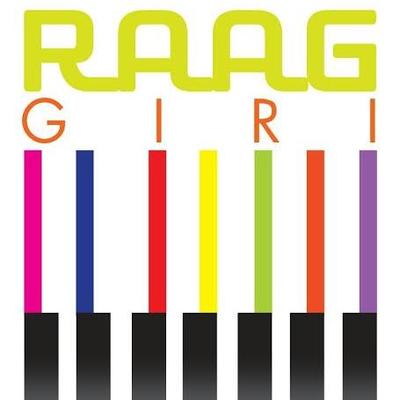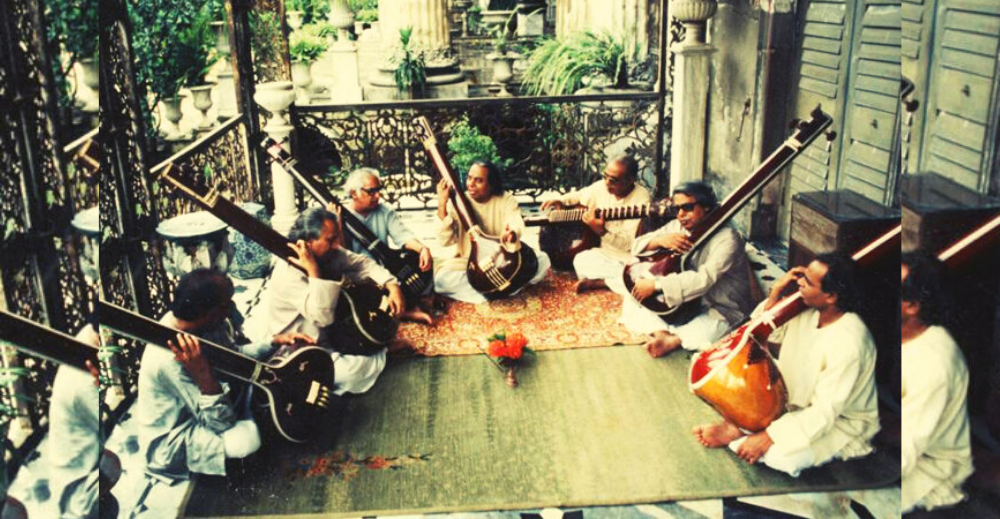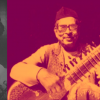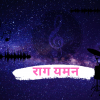Dagar Brothers & Dhrupad Tradition
Dhrupad tradition is one of the most ancient music forms associated with Hindustani classical music. Though the earliest source that mentions Dhrupad is Ain-i-Akbari of Abul Fazl, the origin of the musical genre can be traced back to the chanting of Vedic hymns and mantras. According to Ustad H. Sayeeduddin Dagar who was a renowned vocalist and cousin of legendary Dagar brothers, Dhrupad or Dhruva Pada was in practice since 1st Century B.C. but these sacred verses could be traced from the 15th Century A.D, when King Man Singh Tomar of Gwalior tried to preserve most of these verses. The great musician Tansen had also served in the court of Raja Man Singh before moving to Akbar’s Darbar. Unlike Khayal, Dhrupad requires an artist or a small number of artists to sing in sync with the beats of the pakhavaj or mridang rather than the tabla. There are four prominent Dhrupad baanis namely Dagur, Nauhar, Khandar and Gauhar. The Dagar famiy tree is the only surviving Gharana which has succeeded in preserving Dagarbani. In this article, we are focussing on the four stalwarts of Dhrupad Dhamar Gayaki who dedicated their lives towards the revival of this great tradition.
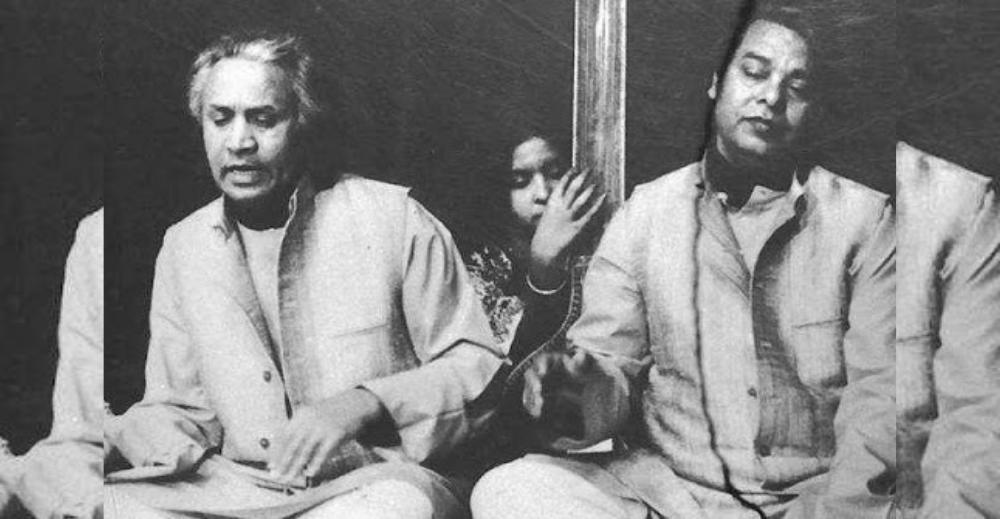
Senior Dagar Brothers
Ustad Nasir Moinuddin Dagar (1919-1966) and Ustad Nasir Aminuddin Dagar (1923-2000), also popular as Senior Dagar brothers, were two of the greatest luminaries of Dhrupad tradition. The duo not only popularised dagarvani in India but also introduced the musical genre in the west. Tracing their roots to the nineteenth generation of an unbroken chain of the Dhrupad tradition, the senior Dagar brothers are often credited for breathing new life to the art of duet or jugalbandi in Dhamar gayaki. The duo brought back the concept of a harmonious synchronization between the two. Their father, Nasiruddin Khan, was a singer in the court of Holkar Maharaja of Indore. The senior Dagar brothers were groomed by their father till his death in 1936. Subsequently, they learned from their uncles- Riyazuddin Khan, Hussainuddin Khan(Tansen Pandey) and Ziauddin Khan. In a typical performance, Ustad Aminuddin’s voice transported the listeners into a deep meditative mood as he gradually descended towards the lower octaves while Ustad Moinuddin mesmerised the audience with his alankars and ornamentations in the upper octave. Together, the duo revived the Dhrupad tradition that had fallen off after the demise of their father Ustad Nasiruddin Khan. The senior Dagar brothers also served as a teaching faculty at Shriram Bharatiya Kala Kendra between 1956 and 1961 and composed music for acclaimed dance dramas like Malati Madhav, Kumar Sambhav, Gitopadesh and Shan-E-Oudh. The duo also trained several dhrupad singers including their younger brothers, who continued the tradition as the (junior) Dagar brothers. Noted musicologist Alain Danielou, who was also an adviser to UNESCO’s International Music Council, invited the duo to perform in Europe. They performed under the UNESCO banner in Berlin, Venice, and Paris, winning widespread acclaim and critics declaring the glory of Dhrupad and the Senior Dagar Brothers. The deep adulation the duo enjoyed could be understood by a review of their performance published in France’s leading daily Le Monde on 17 November 1964 which best described the mood of the western audience: “we will remain under the deep impression of an art of such greatness and intensity that…we feel touched and moved to the deepest of our being.” Ustad Nasir Moinuddin Dagar, the elder of the two brothers, died in the prime of his career in 1966 apparently from some hereditary ailment. Ustad Aminuddin, who regarded his brother as his guru and a father figure, was distraught by the tragedy but continued as a solo performer. Ustad Aminuddiin also performed as a senior artiste at All India Radio and Doordarshan, and entralled audiences with his golden voice. In 1975, he founded his own Dhrupad institute and named it after his elder brother Ustad Nasir Moinuddin Dagar Dhrupad Sangeet Ashram in Calcutta. It is now the oldest surviving institute committed to the preservation and promotion of dagarvani. It was here Ustad Aminuddin Saheb trained some of the best dhrupad singers of the next generation including Alaka Nandy, Ashoka Dhar (famous as the Nandy Sisters), Sujata Moitra, Anu Burman and Dr. Samiran Chatterjee. Ustad Nasir Aminuddin Dagar has been honoured with numerous accolades including Padma Bhushan award in 1986, Sangeet Natak Akademi Award in 1985, Swami Haridas award in 1985, among others. The maestro breathed his last in 2000 in Calcutta due to a protracted illness. He was also the subject of a documentary film portrait called The Recluse.
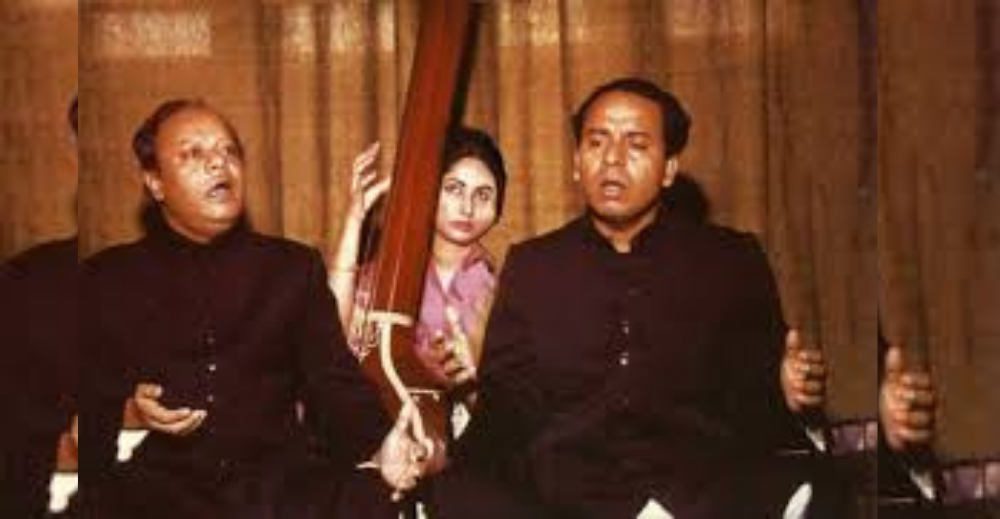
Junior Dagar Brothers
Ustad Nasir Zahiruddin Dagar (1933–1994) and Ustad Nasir Faiyazuddin Dagar (1934–1989), who garnered worldwide recognition as Junior Dagar brothers, were one of the greatest ambassadors of Dhrupad tradition in India classical music. They were younger to Moinuddin Dagar and Aminuddin Dagar who were known as Senior Dagar brothers. After the untimely demise of Moinuddin Dagar at Calcutta in 1966, the junior brothers were the only pair left with responsibility to carry forward the Jugalbandi singing in Dhamar Gayaki. The duo learned Dhrupad music from their elder brothers, the Senior Dagar Brothers. Following the footsteps of elders, the duo continued popularising the ancient musical genre in the western countries. In India, they also formed the Dhrupad Society to promote dhrupad sangeet, inviting all Gharana exponents to share their platform. The duo also trained next generation of musicians including Ustad Faiyaz Wasifuddin Dagar, the son of Nasir Faiyazuddin Dagar who is keeping the family tradition alive along with other dagarvani exponents. The Dagar Brothers are well recorded not only in India but also in countries like France Japan and Austria. The Dagar Brothers Memorial Trust also continues to publish recordings from their private collection.
